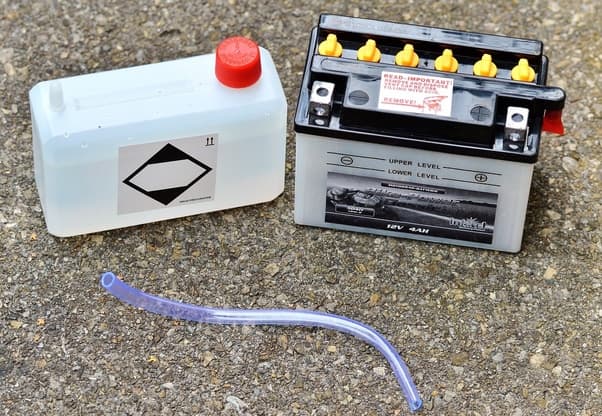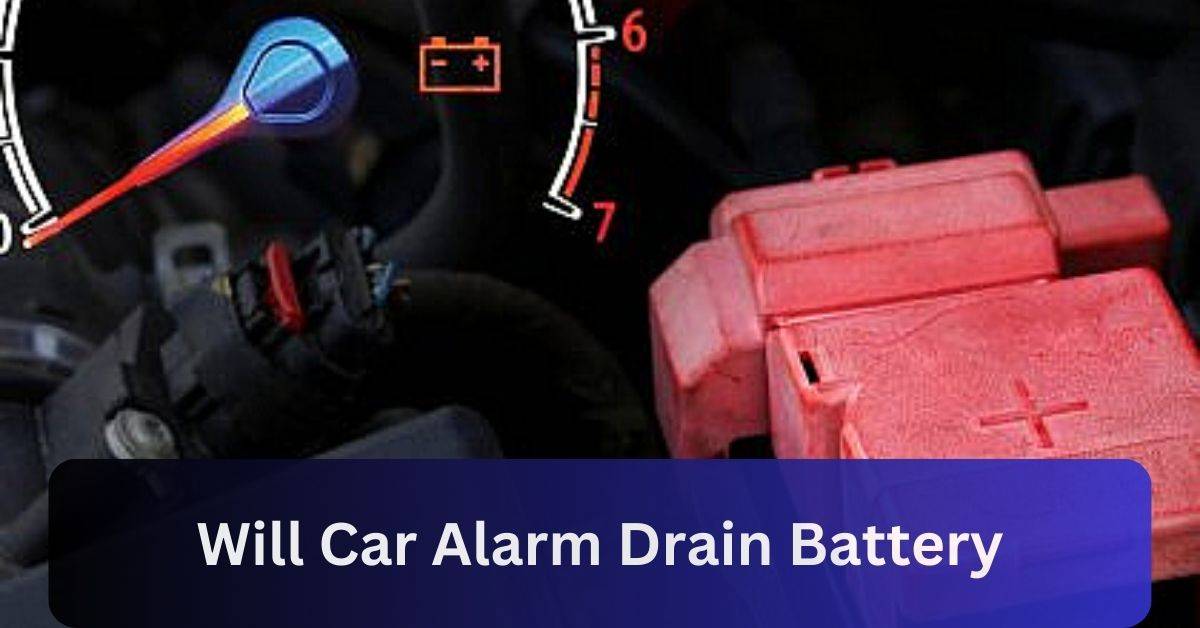Average car batteries range from 400-700 watts but can vary depending on vehicle type & battery size. A battery that meets your vehicle’s specifications is essential to ensure proper performance and avoid damage.
Car batteries are usually measured in volts, but you can easily find their power in watts by simply calculating them. This article will explain how to do that and what it means.
What are watts, and how are they related to car batteries?
Watts measures power. In car batteries, watts show how much energy the battery can deliver. To find watts, multiply the battery’s voltage (12V) by its amp-hour (Ah) rating.

For example, a 12-volt battery with a 50 amp-hour rating gives 600 watts of power (12 volts x 50 amp-hours). This tells you how much power the battery can give to start your car and run electrical parts.
How many Watts does a car battery have?
Finding out the watts in a car battery is easy. Just multiply the volts by the amps. For example, if your battery is 12 volts and 600 amps, it has 7,200 watts (12 volts x 600 amps). This shows how much power the battery can provide.
How many watts does a car battery need while starting a car?
A car battery needs around 300 to 800 watts to start the car. This power helps the battery turn the engine over and start it. The exact amount depends on your car’s engine size and battery strength. A strong battery gives more power, which helps start the car more easily, especially in cold weather.
Read Also: Are Members Mark Batteries Good – Let’s Explore In 2024!
Number of watts in a 12-volt car battery
The number of watts in a 12-volt car battery depends on its amp-hour (Ah) rating. To find this, multiply the voltage (12V) by the amp-hour rating. A 12V battery with 50Ah provides 600 watts (12V x 50Ah). This wattage shows how much power the battery can deliver to your car.

Watts, Watt-Hours, and Amp-hours
Amp-hours tell you how long a battery can give power. Watt-hours show how many watts are used in one hour. For example, a typical car battery is 12 volts and 105 Ah.
This means it can provide 1,260 watt-hours (12 volts x 105 Ah). This is enough power to start your car easily.
How to calculate Watts in a car battery?
Understanding Ohm’s Law helps with car battery calculations.
Ohm’s Law connects Voltage (V), Current (I), and Resistance (R) with the formula: I (Amps) = V / R. For power, use: Power (Watts) = Voltage (V) x Current (Amps). For example, a 12-volt battery with 400 amps has 4,800 watts (12V x 400 amps).
Read Also: Will Costco Install A Car Battery – Everything You Need!
Calculating watt-hours in a car battery
To calculate watt-hours in a car battery, multiply the battery’s voltage by its amp-hour (Ah) rating.

For example, if you have a 12-volt battery with 50 Ah, multiply 12 volts by 50 Ah. This gives you 600 watt-hours (12V x 50Ah). Watt-hours show how much energy the battery can provide over time.
Car Battery Watt Hours:
Car batteries typically range from 420-900 watt hours, measuring energy storage capacity. This rating affects battery life, performance, and overall car functionality.”
Factors Affecting Car Battery Wattage
Battery performance is affected by several factors:
- State of Charge: Voltage drops as the battery drains.
- Temperature: Cold weather lowers the battery’s capacity and voltage.
- Age and Condition: Older batteries have less capacity and higher resistance.
- Discharge Rate: Fast discharges reduce the battery’s effective power.
A fully charged battery at the right temperature gives the most power. Lower voltage and cold temperatures reduce overall wattage.
How Many Watts In A 12 Volt Car Battery
A 12-volt car battery typically stores 600-1200 watt-hours of energy, calculated by multiplying its 12-volt rating by its capacity, usually ranging from 40-100 Ah.
Car Battery Power Output and Energy Storage
Car batteries give a lot of power quickly to start engines. They do this with thin lead plates that have a large surface area. While they don’t store a lot of energy, they provide very high power for a short time, often delivering over 500 amps to crank the engine.
How Long Can a Car Battery Last Without Driving?
A car battery can last about 2 to 4 weeks without driving. This can change depending on how old the battery is and its condition. To keep it in good shape, try to start the car every week or use a battery charger. If left too long without use, the battery might lose its charge and need replacement.

Frequently Asked Questions:
1. What factors affect the wattage of a car battery?
A car battery’s wattage depends on its voltage, amp-hour rating, temperature, and how old it is. Higher voltage and amp-hour ratings mean more wattage. Cold temperatures and old batteries can reduce wattage and performance.
2. Does the wattage of a car battery affect its performance?
Yes, the wattage of a car battery affects its performance. Higher wattage means more power for starting the engine and running electrical systems. Lower wattage can make starting harder and reduce overall battery effectiveness.
3. Can I use a car battery with a different wattage than recommended?
It’s best to use a car battery with the wattage recommended by your car’s manufacturer. Using a battery with different wattage can cause poor performance or damage. Always check your car’s manual for the right battery specifications.
4. How long can a car battery power electrical devices?
A car battery can power electrical devices for a few hours, depending on its wattage and the device’s power needs. A fully charged battery might run a 60-watt device for about 10 hours.
5. Is it safe to use a higher-wattage battery in my car?
A higher-wattage battery in your car is usually not recommended. It might not fit well or could cause damage. Always use a battery with the wattage and specifications recommended by your car’s manufacturer to ensure safe operation.
Conclusion:
In conclusion, car batteries are crucial for starting engines and powering electrical systems, typically providing 420-900 watts.
By understanding how to calculate wattage and considering factors like temperature, age, and discharge rate, you can ensure optimal performance.





